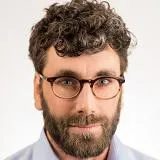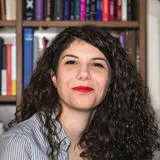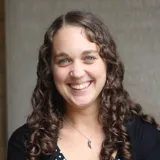Following the success of our 2023 Optics Summer School, I was very happy to see the programme continuing and this time dedicated to girls. It's been a delightful three days at King's, talking about our passion in Optics and Physics to a bunch of bright young minds.
Senior Lecturer in Experimental Physics Education
31 July 2025
Summer school promotes physics amongst young girls
Twenty-six students attended a three-day girls optics summer school at King’s College London in July, inspiring the next generation of female physicists.
Twenty-six students attended a three-day girls optics summer school at King’s College London in July, inspiring a new generation of female physicists. The summer school invited students of sixth form age to explore the subject on an undergraduate level.
Their evaluations spoke about what they valued about the summer school:
- I enjoyed the community as I don't think there are enough women in physics and everyone who taught us was actually interested in their subject which makes it much more engaging.
- Hearing Amelle's lecture because, as someone who wants to go into research, she was very inspiring.
- Networking with KCL students. They give a more personal insight to university applications and university life.
In the UK, undergraduate physics courses remain unbalanced by gender, with male students being the larger group on many courses. Thanks to funding from the Ogden Trust and the International Society of Optics and Photonics (SPIE) a team from the Faculty of Natural, Mathematical and Engineering Sciences (Eva Philippaki, Kathryn Boast, and Francesco Lotti) and the Faculty of Social Science and Public Policy (Richard Brock from the School of Education, Communication and Society), led a three-day summer school in July to support the aspirations of sixth form students to study physics. The course was assisted by a team of physics undergraduate ambassadors. Eva Philippaki commented that:
The summer school focused on optics and its applications. The students, drawn from state schools across the London area, arrived at the course with aspirations to studying physics:
When I was researching the description was compelling because it was on light – because that is a very specialised part of physics, but we go don’t get to explore in more detail at school
When deciding if we wanted to do a career in physics or a university physics course it is really helpful to understand what a higher education course is like
I heard the laboratories were really nice. I wanted to come here to explore all of the cutting-edge tools.
The first day began with a lecture on the history of optics, including an emphasis on female role models, for example, the Nobel prize-winning laser physicist, Donna Strickland. The students were introduced to geometrical optics before applying the concepts in a hands-on session. The girls used lasers to explore the focusing power of lenses, created a “sunset in a glass”, and made a glass rod “disappear” through the power of optics.
The second day saw students learn about the applications of optics to ophthalmology, discovering more about the structures of the eye and human colour vision. The next practical session allowed students to see the curious phenomenon of Newton’s rings and to carry out experiments on optical benches. The afternoon began with a tour of the campus (including a visit to a scanning electron microscope, and an introduction to the campus ghost). Finally, students met representatives of the KCL Womxn in Physics Society to ask questions about the undergraduate experience and to construct an illusion known as Pepper’s Ghost using acetate projectors and their mobile phones.
The final day gave the students a chance to experience a lecture on the cutting-edge optics and photonics research taking place at KCL. Dr Amelle Zaïr spoke on “Can we freeze time?” and her work in ultrafast lasers. The students’ final practical session saw them building invisibility cloaks. The day concluded with advice on applying to study physics at university. Students commented that:
The practicals were the best bit. I am not a practical person – but we got to see machines we don’t normally get to engage with, and the demonstrations were very thorough so we could follow along – we understood what we were doing.
The tour was really nice – it was great to see the clean rooms.
Optics is not a topic we specifically cover at school – it was nice to learn a topic we don’t learn at school and get a sense of what learning at university would be like.
I really enjoyed how it linked what we learned to what we know as well as learning.
The summer school provides an invaluable insight into undergraduate level physics and works as a unique incentive to encourage female physicists. The organisers hope to offer this summer school on an annual basis.



